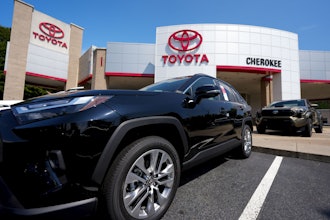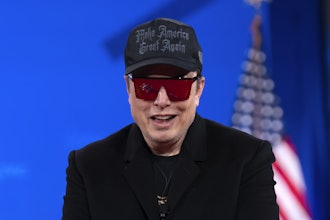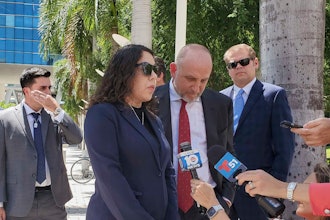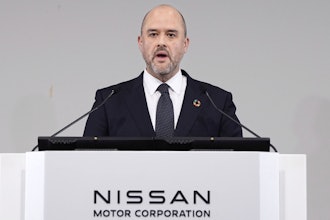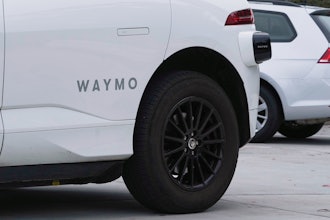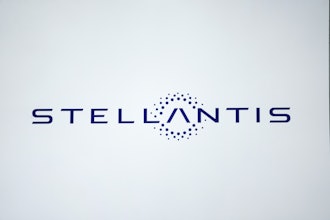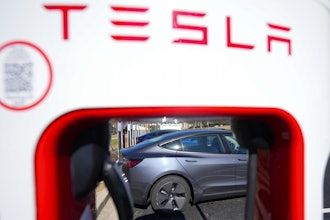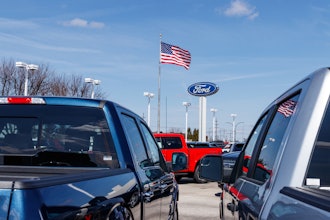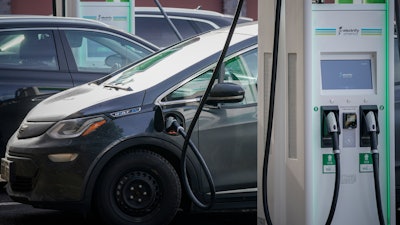
HARTFORD, Conn. (AP) — Connecticut officials have begun rolling out a wide-ranging new law aimed at reducing vehicle emissions, including adding 10 more electric vehicles that will now be eligible for the state's rebate program.
The legislation, which increases funding for the initiative, raises the MSRP cap for eligible purchased and leased battery electric vehicles, plug-in hybrid electric vehicles and fuel cell electric vehicles to $50,000. In turn, state residents who meet certain income requirements can qualify for up to $9,500 in incentives depending on the type of vehicle.
“We’ve seen a doubling, a doubling of the number of electric vehicles registered on the road here in Connecticut just in the last two years, as folks are ... struggling with high gas prices,” said Department of Energy and Environmental Protection Commissioner Katie Dykes during a news conference highlighting the new law on Friday in New Haven. Dykes said the Connecticut Automotive Retailers Association has seen an uptick in customers who want access to electric vehicles.
The new law will also usher in the state's first electric bike voucher program. Dykes said the first public meeting was held this week to gather input on how to design the initiative. Additionally, the state agency has begun crafting a plan for distributing $20 million for electric school buses — spending that's expected to trigger federal funding, as well.
Meanwhile, the state is making up to $4 million available to public and private entities to purchase and install light-duty charting stations. The funding comes from a 2018 settlement between the federal Environmental Protection Agency and Volkswagen for violations of the Clean Air Act.
Dykes said her agency has also begun work on regulations that would implement California's clean air standards for medium- and heavy-duty motor vehicles, another key component of the new legislation.












